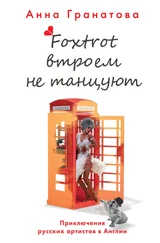After half an hour, Leila saw that Aung-Hla was standing just outside the door to the shack. He motioned to her — silently, pantomimically — that they should go. She stood up. He came in and started speaking to the young soldiers quickly and with force, cutting them off when they tried to answer back, the way you need to speak if you have any hope of bluffing armed teenagers. He gathered up the contents of Leila’s travel wallet from the soldiers’ laminate desk and sort of reverse-shepherded her out of there, then retreated with Leila to the taxi outside, the soldiers close behind. He saw Leila into the backseat, and, still talking sternly to the soldiers, Aung-Hla himself lifted the barrier across the road. This was too much for one of the soldiers; he unholstered his dull brown pistol and started yelling. Aung-Hla pointed directly down the road and said something ferocious-sounding to the gun-holding boy soldier. It must have been ferocious, because it quieted him, and Aung-Hla took a moment before he turned his key and pulled away from the checkpoint at a dignified speed. Leila fought the urge to sink low in her seat as she had seen people on TV do to duck bullets.
Once he had them out of range, Aung-Hla drove at an increasingly less dignified speed. Leila could see the fear in the back of his neck as they rounded the rutted roads. Those soldiers were drunk, or maybe high, Leila came to understand via Aung-Hla’s explanatory charades from the front seat. He made the drink-from-an-upturned-bottle-the-neck-of-which-is-your-thumb gesture. He made the drawing-on-a-joint-pinched-between-thumb-and-index-finger gesture. Then he raised an index finger before him and ticktocked it back and forth, like a metronome on ninety beats per minute, to indicate no, negative, not to be done, nope, don’t, dangerous . He did it well, this manual negation, keeping his hand still beneath his tocking finger, keeping eye contact with Leila in the rearview.
Aung-Hla left the main road and turned up a wide gravel one that ribboned up a clear-cut hillside into the forest. Leila noted that she was now trusting her driver way past the point of soup. Aung-Hla was trying to explain to her where they were going. Here is what she got: “The drunk soldiers’ bosses work up here. If I complain about the drunk soldiers before they report a gate-jumping taximan carrying a white girl, we will be fine. No trouble.”
Maybe Aung-Hla knew someone up here. His brother-in-law. Or nephew. Or great-grandfather. Kinship words in Burmese were a bitch.
When another checkpoint hove into sight, Aung-Hla tossed into the backseat a sort of cotton sarong and told Leila to cover up. She wrapped the sheetish thing around herself and cowled the top part into a hood. Aung-Hla pulled to the side of the road in front of the checkpoint, cut the engine, and told her to stay in the car. In perfect English: “Stay in the car,” he said. He left the taxi and strode up to the checkpoint house, which was a more impressive affair than the last: it was made from a modified shipping container and raised off the ground; a sweaty air conditioner was bolted to its back, and a telescoping mast lifted a mean-looking and satellite-laden antenna twenty feet into the air. The antivehicle device was not a crappy lift gate but a metal deck with those retractable one-way teeth that you just knew would rip the shit out of your tires. Leila saw Aung-Hla greet one of the checkpoint men with body language that was hearty but submissive. He was led inside the container office by the man he greeted, but he managed to give Leila a no-look thumbs-up sign just before the door closed behind him.
Leila sat in the car. It was only ten in the morning, but after a few minutes, the car was so hot she felt like a Pop-Tart. She looked hungrily at the shade beneath a nearby tree. But Aung-Hla had told her to stay put, and she intended to stay put. She drooped the cowl of her sheetish thing over her brow, tried to keep exquisitely still. Heat this hot was conducive to Buddhism, she realized; it encouraged stillness. Her exhalations stirred the cloth near her chin. Her eye found the photo of Aung-Hla’s daughters rubber-banded to the visor. They were seated triangularly against a fake alpine backdrop. They were, at time of snap, what — six, eight, and ten? Then she saw the already-fading printout of the digital photo she’d taken of the car she was sitting in. (In the picture, there was a weeping green tree behind the car, and clean black tarmac beneath its wheels. She had done a good job with the composition.) There was an analog clock Velcroed to the dashboard. The vinyl warmed; the car ticked hotter.
A big Mitsubishi pulled up to the checkpoint. The tire-hungry teeth of the drive-over plate were retracted posthaste, and the Mitsubishi clanked across. Two men debouched from the rear of the car. Leila thought they were a strange pair: one looked Burmese and about fifty; the other looked like a hipster in a Starbucks — T-shirt, square glasses, big headphones, a laptop satchel. They both walked quickly into the container-fort-office thing, the older man holding the door for the younger. Leila was roused from her mild meditation by the event. Then two more white dudes got out of the front of the Mitsubishi and each man started — digging something from his teeth? No, they were both installing plugs of chewing tobacco in their lips. Leila had tried that once; puked. The men were fifty feet away. They were talking, but she couldn’t hear what they said. Leila tried to lull herself back into the fugue. She was getting better at recognizing situations over which she had no control.
The two men were leaving their vehicle and walking nearer to hers. They made it to the shade tree she had been coveting. Once they reached it, they didn’t so much stand under it as lurk beneath it. They had the hunch of security men but wore no insignia or uniform. They were fifteen feet beyond her open window. They both wore black, wraparound glasses, from behind which, she was sure, they were scanning the perimeter. One, the younger man, clocked her, and then Two, but they both seemed to look right past her. Through the sheer fabric of her wrap she could see them plainly, but they were talking as if they were alone. They spoke English in American accents.
“…little prick thinks we’re butlers?” said One. He spit a brown splat on the dirt at his feet.
“Doesn’t matter what he thinks we are,” said Two.
“I mean, he’s fucking tech support. He’s here to install software. You know that?”
Two snapped: “No, I do not know that. You don’t either. You know he’s the package. You get him in, you get him out. That is all you know.”
“I know that little shit sent me back for his suitcase, for face cream or whatever. I know that,” said One. “This whole shit is bullshit, is all I’m saying.”
Two said nothing to this last critique. But he spit, better than One had, a glob missiled at the ground. A tiny shake of his head told Leila he was rolling his eyes behind the viperous shades.
One hadn’t finished. “We’re not allowed to carry. That’s bullshit. These eight-week rotations are bullshit. And the food is definitely bullshit. If that was chicken, I’m Pat Sajak.”
“You getting paid?” Two asked One. Veins stood out on his arms, his neck.
One was indeed getting paid, apparently, for the line quieted him. But he was still mad, Leila could tell, watching from behind her veil. He was standing in a tough-guy pose, and when he spit, he squinted like he was pissed at the tobacco. “That job with the Pakis — now, that was a job.”
“Boy,” said Two — they both looked like hammers, but Two was older—“if you just want to be muscle, you got about five years left in this business.”
“Nothing wrong with being muscle.” One sounded hurt. “Better than being a fucking taxi driver.”
Читать дальше












